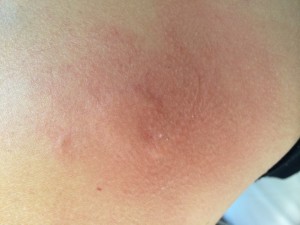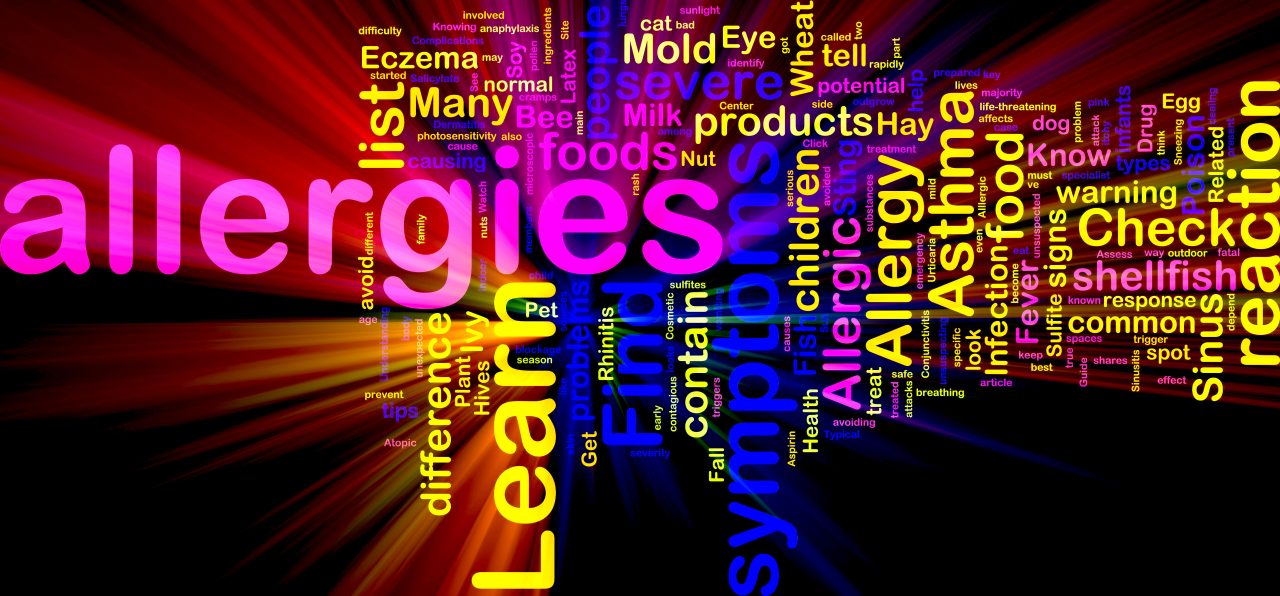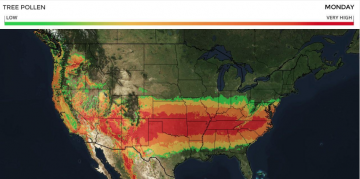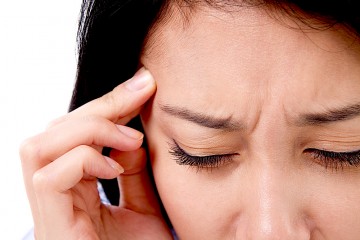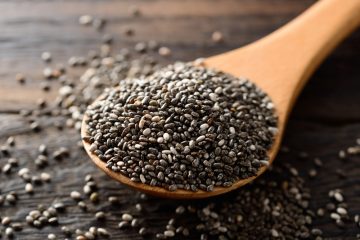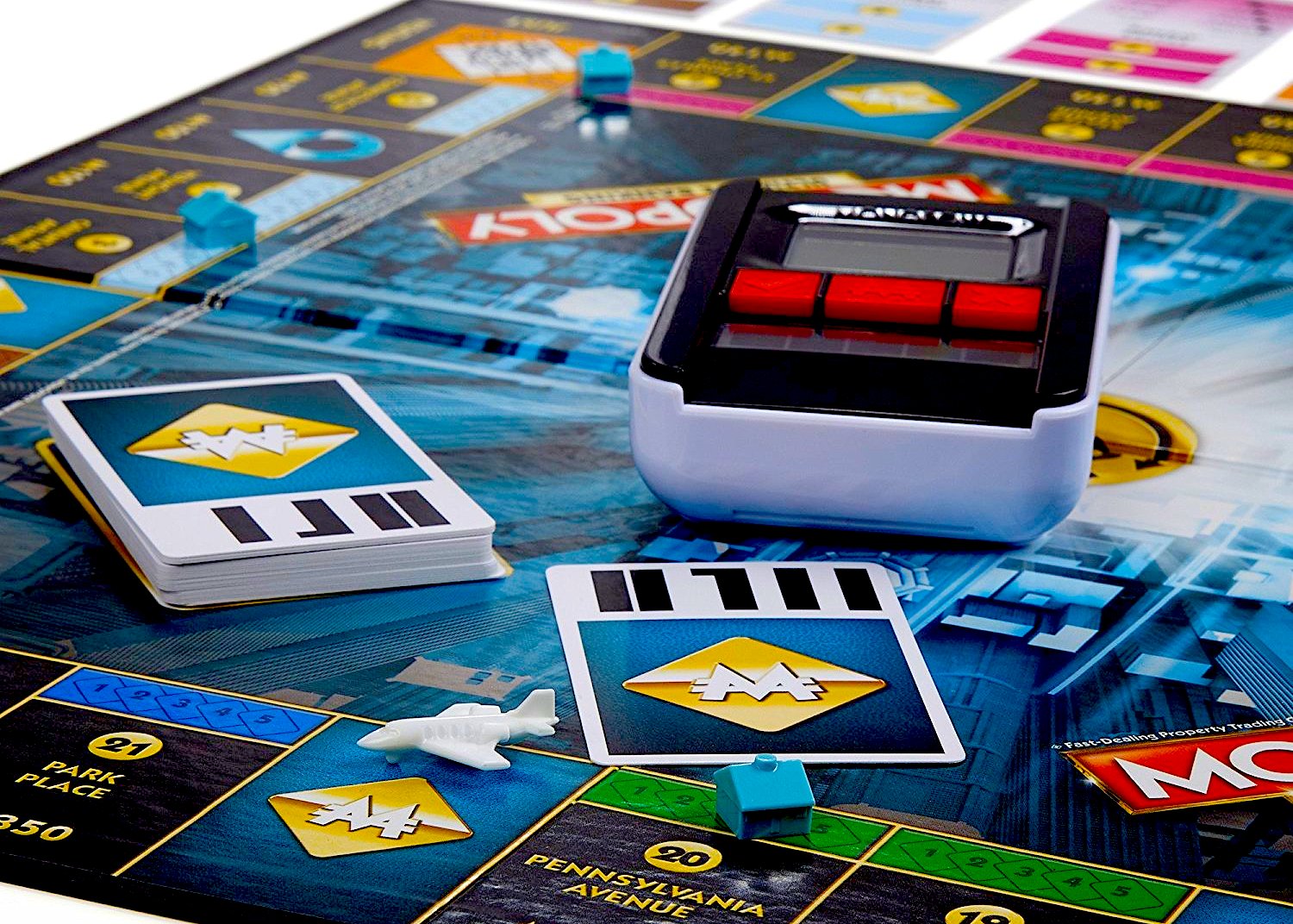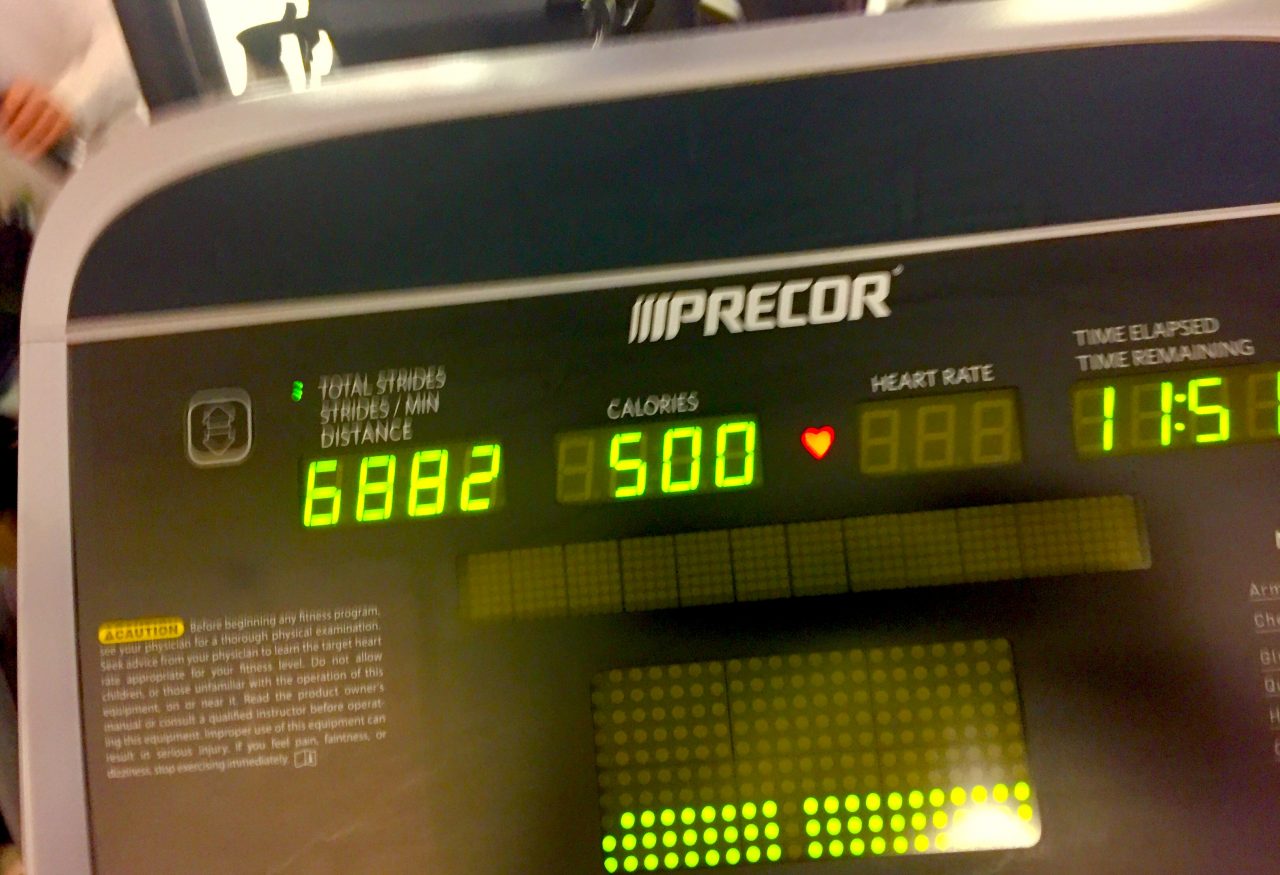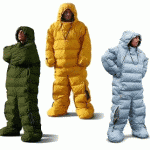Bee Stings-What To Do When Stung By A Bee
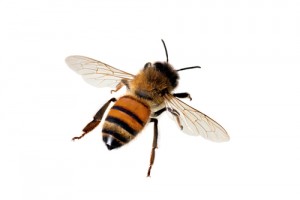 HOLY COW! The bees are everywhere right now! I was at a soccer tournament in Massachusetts last weekend and one of the other moms was getting attacked as if she was a rare flower needing to be pollinated. I’m not a fan, though I have seen The Bee Movie, so I know they are essential to our environment. But, I still don’t like them. Recently, I went out to the Northfork of Long Island to get away from my kids and to taste some wine — two of my favorite things. It was an idyllic 24 hours — good food, spectacular weather, breathtaking views, and wine that … well, there was wine. (If you drank a lot of it, it started tasting better.) When we got in the car to drive home, one of my all-time favorite songs was on the radio — Closer to Fine by the Indigo Girls. I felt like I was in an awesome movie. And then, BAM! Gunshot to the shoulder. Well, it was actually only a bee sting, but I reacted as if I had a bullet wound. I screamed so loudly, Larry actually drove off the road. I may have overreacted a little bit, but in my defense, it really, really, really hurt. And, it kept hurting for about 8 hours. My whole back felt like it was burning, and I didn’t feel quite right in the head — which I refuse to blame on the wine. I have a new appreciation for bee stings.
HOLY COW! The bees are everywhere right now! I was at a soccer tournament in Massachusetts last weekend and one of the other moms was getting attacked as if she was a rare flower needing to be pollinated. I’m not a fan, though I have seen The Bee Movie, so I know they are essential to our environment. But, I still don’t like them. Recently, I went out to the Northfork of Long Island to get away from my kids and to taste some wine — two of my favorite things. It was an idyllic 24 hours — good food, spectacular weather, breathtaking views, and wine that … well, there was wine. (If you drank a lot of it, it started tasting better.) When we got in the car to drive home, one of my all-time favorite songs was on the radio — Closer to Fine by the Indigo Girls. I felt like I was in an awesome movie. And then, BAM! Gunshot to the shoulder. Well, it was actually only a bee sting, but I reacted as if I had a bullet wound. I screamed so loudly, Larry actually drove off the road. I may have overreacted a little bit, but in my defense, it really, really, really hurt. And, it kept hurting for about 8 hours. My whole back felt like it was burning, and I didn’t feel quite right in the head — which I refuse to blame on the wine. I have a new appreciation for bee stings.
This is my reaction:
– In the U.S. about 100 people die each year from bee stings.
– About 2 million Americans are allergic to bees. This means about 3% of children who are stung will have an allergic reaction.
– Most people will just experience pain and some swelling at the site of the sting for a few hours. Those who are allergic will have more severe symptoms including:
– hives over a large part of the body
– itching and severe swelling
– dizziness, nausea and stomach cramps
– swelling of the face, tongue and throat
– difficulty breathing and wheezing
– If symptoms include any of the above, or are worsening, seek medical attention completely.
– For general symptoms of pain and swelling, try ice and hydrocortisone at the site. Take ibuprofen for pain and an antihistamine (like Benadryl) for the local reaction. Keep the area elevated and like me, use it as an excuse not to make dinner.
Most people will not know they are allergic to bee stings until they are actually stung. Adults are more at risk for an anaphylactic attack than children. If you’ve had a reaction to a bee sting before, it is more likely you will have a severe reaction in the future. You should carry an Epipen, especially during outdoor activities.
Avoid bee stings in the first place:
– Don’t swat at bees or run from them.
– Don’t wear strong scents around bees.
– Don’t drink from an open can that’s been sitting unattended, as they attract bees.
– Drive with your windows closed (something I needed to know YESTERDAY!)
Bottom line, allergic reactions can be fatal, but with the proper medicine, they are treatable. Don’t wait and watch. If you are concerned, call 911 as soon as possible.
Everything You Need to Know About Allergies
Find out what the pollen count is today.
Our 15+ Favorite Mouth-Watering Burgers
Off the Beaten Path in Puerto Rico: Ponce
When Should You Worry About a Headache?
Why You Should Add Chia to your Diet
15+ of Our Favorite Family Games
25+ Healthy Toppings for Your Breakfast Bowl
Eye cream for mornings when you not only feel like crap
…but look like crap too.
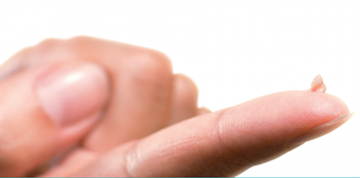
The Magic Number of Calories to Burn to Lose Weight

